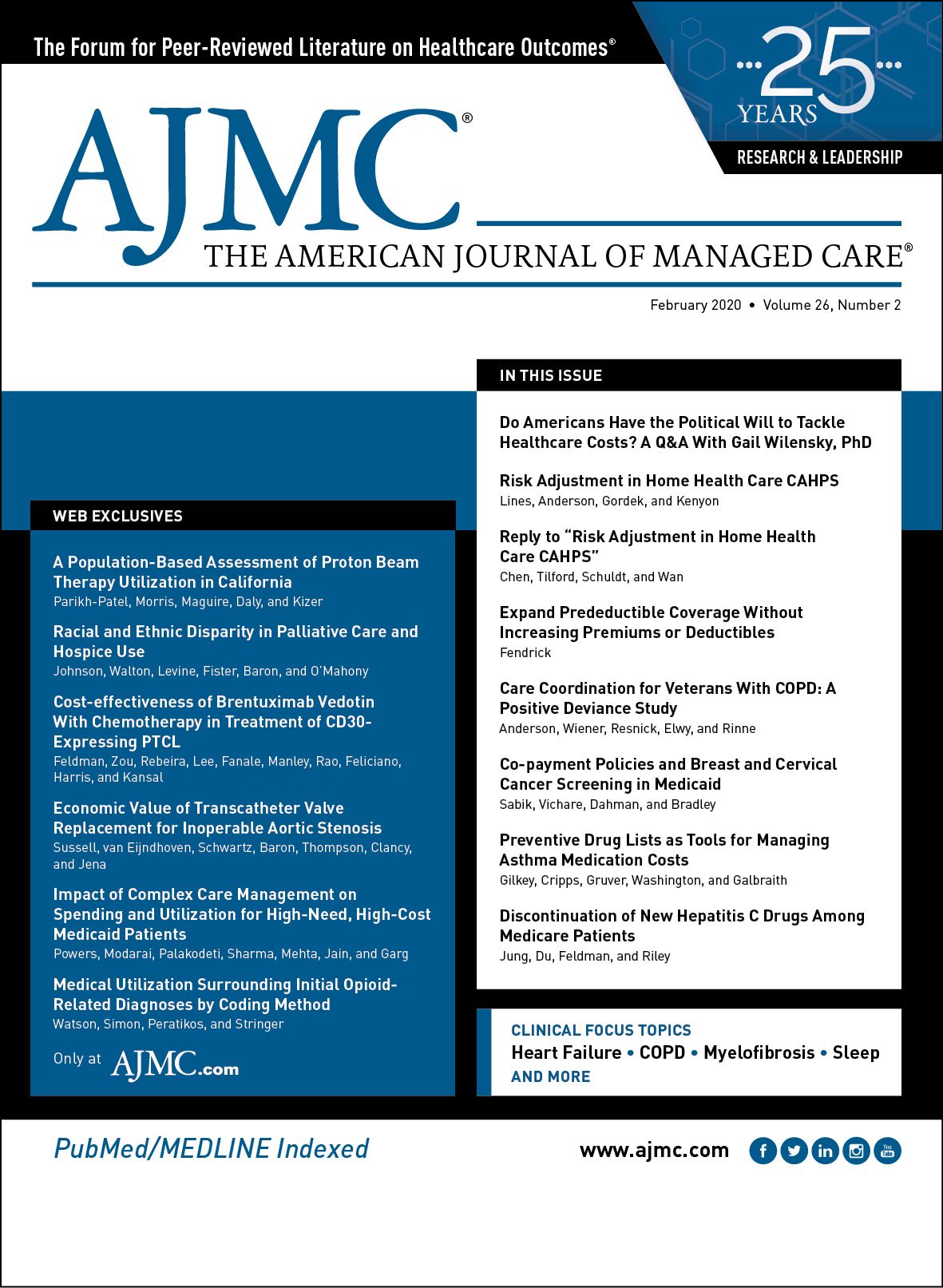- Center on Health Equity & Access
- Clinical
- Health Care Cost
- Health Care Delivery
- Insurance
- Policy
- Technology
- Value-Based Care
From the Editorial Board: Jeffrey D. Dunn, PharmD, MBA
Hepatitis C virus (HCV) was a key, if not the most talked about, disease state a couple of years ago due to the approval of new, more effective, very expensive medications. The budget impact of these medications was massive due to the size of the HCV population (which included many “warehoused” patients). Due to competition, the price of the HCV treatments has significantly decreased, and it seems that priorities have shifted again to other “new” specialty categories.
But the article in this issue titled “Discontinuation of New Hepatitis C Drugs Among Medicare Patients,” by Jeah Jung, PhD, MPH, and coauthors, should remind us that compliance and outcomes are still the key to managing our patients with HCV regardless of the lower cost of treatment. Although relatively low, discontinuation of therapy was reported to be 3 times more likely than that found in clinical trials. This doesn’t need to be the case. There are things we can do.
HCV is the “poster child” disease state for how a successful clinical management program can be implemented. At VRx, we developed a “Right Start” specialty program for our patients with HCV. The goal was the age-old motto “right drug, right patient, right time.” As all HCV therapies require a prior authorization (PA), the program started with Immediate Communication—a clinical pharmacist or nurse reached out upon PA approval and discussed adherence, potential adverse effects, and therapy expectations with the patient—when the patient was most engaged and ready to act. Subsequently, there was a personal outreach every month for the duration of therapy with a focus on answering questions, reinforcing goals, and supporting adherence through completion of therapy. This personal interaction often resulted in a mini medication therapy management intervention in which other healthcare issues were resolved, gaps in care were addressed, and satisfaction was increased. Any issues or recommendations were communicated back to the provider. This program resulted in 100% compliance/completion of therapy rates, and all patients achieved therapeutic goal.
This is an example of how a payer can work with patients and providers to improve outcomes and manage costs. I believe that this is a key responsibility of payers. We have the resources and data unavailable to other stakeholders. But these programs have to be built and managed in a more effective and strategic way, including how we structure teams and how we interact with members. Pharmacists, nurses, and even social workers should be on the same team, and interactions need to be tailored to the needs of the individual patient. But, if done correctly, these programs will have a positive return on investment. It is time to take control. Specialty medications account for 50% of total pharmacy spend, with significant impact on per-member per-year costs and trends. Traditional passive disease management and care management programs will not work in these less prevalent, expensive disease states. Some simple thought and reorganization can significantly change direction and outcomes. And we cannot continue to work in siloes, often with misaligned incentives. Again, it is our responsibility as healthcare professionals and payers to align incentives and help facilitate the more coordinated delivery of healthcare, especially given the escalating costs of drug therapy.

Quality of Life: The Pending Outcome in Idiopathic Pulmonary Fibrosis
February 6th 2026Because evidence gaps in idiopathic pulmonary fibrosis research hinder demonstration of antifibrotic therapies’ impact on patient quality of life (QOL), integrating validated health-related QOL measures into trials is urgently needed.
Read More
Ambient AI Tool Adoption in US Hospitals and Associated Factors
January 27th 2026Nearly two-thirds of hospitals using Epic have adopted ambient artificial intelligence (AI), with higher uptake among larger, not-for-profit hospitals and those with higher workload and stronger financial performance.
Read More
Motivating and Enabling Factors Supporting Targeted Improvements to Hospital-SNF Transitions
January 26th 2026Skilled nursing facilities (SNFs) with a high volume of referred patients with Alzheimer disease and related dementias may work harder to manage care transitions with less availability of resources that enable high-quality handoffs.
Read More

